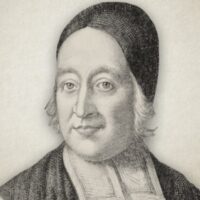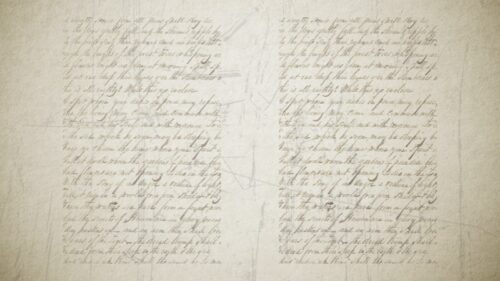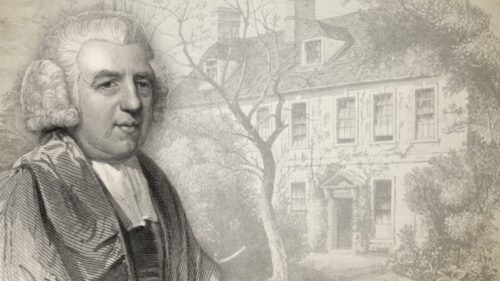Praise God, From Whom All Blessings Flow
According to Charles Buck, a doxology is “a hymn used in praise of the Almighty”. It is typically sung at the end of corporate worship, before the people of God are dismissed.
Some of the points covered in this sermon:
• James Montgomery’s appraisal of the hymn
• A short sketch of Thomas Ken’s life
• The occasion and purpose for which Ken wrote the hymn
• The larger compositions into which the hymn originally belonged
• The theme of the hymn—those made in the image of God, should praise the God in whose image they are made
• An exposition of the hymn—(1) the object of praise; (2) the givers of praise
• An examination on how the hymn fits within the framework of sovereign grace
Sermon—“An Inspired Doxology”
Some of the points covered in this sermon:
• Unfolding the structure of Psalm 117
• Showing how the Psalm fits within the framework of sovereign grace
• Connecting the Psalm with the teachings of Paul in Romans 15
• Highlighting the significance on why God designed the Psalm to serve as a doxology for His people
Thomas Ken (1637-1710) was an English Protestant preacher and hymn writer. He is best known as the author of “Morning And Evening Hymns” and the Doxology, “Praise God, From Whom All Blessings Flow”. John Gadsby wrote of him:
“Thomas Ken was born at Berkhampstead, Herts, in July, 1637. He was sent to the Winchester College, and was afterwards elected to New College, Oxon, where he took up his decrees of B.A. 1661, M.A. 1664, Bachelor of Divinity 1678, and D.D. 1679. Some time after this he published his hymns, etc. In 1660 he was preferred to the dignity of Prebendary in the Cathedral Church of Winton, where he was taken notice of by King Charles II. In 1675 he travelled through Italy, and on his return said he had great reason to be thankful for his journey, since, if it were possible, he was more than ever confirmed of the purity of the Protestant religion. About 1679 or l680 he was appointed chaplain to the Princess of Orange, and went to Holland, where she was then residing. Here he compelled one of her favorites to fulfil a contract of marriage with a young lady of the princess's train, whom he had seduced by that contract. This zeal gave such offence to the prince (afterwards King William III) that he threatened to turn him out of the service; upon which Ken begged the Princess to allow him to resign, and accordingly threw up his office, nor would he consent to return until entreated by the Prince. In 1684 he was appointed chaplain to the king (Charles II). Upon the removal of the court to Winchester to pass the summer, Ken's house was fixed upon as the residence of the celebrated Nel Gwynne, Charles's mistress; but Ken positively refused her admittance, which, instead of offending that profligate monarch, he soon afterwards appointed him to the bishopric of Bath and Wells. In 1685 the king died, and James II ascended the throne. Having been brought up a Papist, he endeavored to re-establish the Popish religion, which Ken opposed, and often preached against it. On one occasion, when the king was absent, Ken's enemies took the opportunity of accusing him to the king for his sermon; whereupon Ken remarked, that "if his majesty had not neglected his own duty of being present, his enemies would have missed this opportunity of accusing him." When the king ordered the famous declaration of indulgence to be read, Ken and six other bishops refused to comply, and were committed to the Tower to take their trial; but the jury acquitted them. The infamous Judge Jeffries lived at this time, under whom no less than 250 persons were executed. When James abdicated, and the Prince of Orange came over as William III, Ken vacated his see, as he would not swear allegiance to the new sovereign while his former master was living. Ken now removed to Longleat, in Wiltshire, where he resided in comparative retirement the remainder of his days. He died March 19th, 1710. He was the author of the well-known Morning and Evening Hymns, and of the Doxology, "Praise God, from whom all blessings flow."
Thomas Ken Hymn Studies





